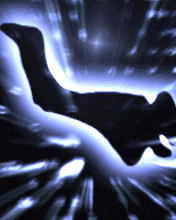GPS technology has matured into a resource that goes far beyond its original design goals. These days scientists, sportsmen, farmers, soldiers, pilots, surveyors, hikers, delivery drivers, sailors, dispatchers, lumberjacks, fire-fighters, and people from many other walks of life are using GPS in ways that make their work more productive, safer, and sometimes even easier.
"Where am I?"
The first and most obvious application of GPS is the simple determination of a "position" or location. GPS is the first positioning system to offer highly precise location data for any point on the planet, in any weather.
Knowing the precise location of something, or someone, is especially critical when the consequences of inaccurate data are measured in human terms. For example, when a stranded motorist was lost in a South Dakota blizzard for 2 days, GPS helped rescuers find her.
Sometimes an exact reference locator is needed for extremely precise scientific work. Just getting to the world's tallest mountain was tricky, but GPS made measuring the growth of Mt. Everest easy. The data collected strengthened past work, but also revealed that as the Khumbu glacier moves toward Everest's Base Camp, the mountain itself is getting taller.
The first and most obvious application of GPS is the simple determination of a "position" or location. GPS is the first positioning system to offer highly precise location data for any point on the planet, in any weather.
Knowing the precise location of something, or someone, is especially critical when the consequences of inaccurate data are measured in human terms. For example, when a stranded motorist was lost in a South Dakota blizzard for 2 days, GPS helped rescuers find her.
Sometimes an exact reference locator is needed for extremely precise scientific work. Just getting to the world's tallest mountain was tricky, but GPS made measuring the growth of Mt. Everest easy. The data collected strengthened past work, but also revealed that as the Khumbu glacier moves toward Everest's Base Camp, the mountain itself is getting taller.
"Where am I going?"
GPS helps you determine exactly where you are, but sometimes important to know how to get somewhere else. GPS was originally designed to provide navigation information for ships and planes. So it's no surprise that while this technology is appropriate for navigating on water, it's also very useful in the air and on the land.
On the Water
It's interesting that the sea, one of our oldest channels of transportation, has been revolutionized by GPS, the newest navigation technology. And as you would expect, navigating the world's oceans and waterways is more precise than ever. Today you will find GPS receivers on vessels the world over, from hardworking fishing boats and long-haul container ships, to elegant luxury cruise ships and recreational boaters. A New Zealand commercial fishing company uses GPS so they can return to their best fishing holes without wandering into the wrong waters in the process. But GPS navigation doesn't end at the shore.
GPS helps you determine exactly where you are, but sometimes important to know how to get somewhere else. GPS was originally designed to provide navigation information for ships and planes. So it's no surprise that while this technology is appropriate for navigating on water, it's also very useful in the air and on the land.
On the Water
It's interesting that the sea, one of our oldest channels of transportation, has been revolutionized by GPS, the newest navigation technology. And as you would expect, navigating the world's oceans and waterways is more precise than ever. Today you will find GPS receivers on vessels the world over, from hardworking fishing boats and long-haul container ships, to elegant luxury cruise ships and recreational boaters. A New Zealand commercial fishing company uses GPS so they can return to their best fishing holes without wandering into the wrong waters in the process. But GPS navigation doesn't end at the shore.
Tracking
If navigation is the process of getting something from one location to another, then tracking is the process of monitoring it as it moves along. Commerce relies on fleets of vehicles to deliver goods and services either across a crowded city or through nationwide corridors. So, effective fleet management has direct bottom-line implications, such as telling a customer when a package will arrive, spacing buses for the best scheduled service, directing the nearest ambulance to an accident, or helping tankers avoid hazards.
GPS used in conjunction with communication links and computers can provide the backbone for systems tailored to applications in agriculture, mass transit, urban delivery, public safety, and vessel and vehicle tracking. So it's no surprise that police, ambulance, and fire departments are adopting GPS systems to pinpoint both the location of the emergency and the location of the nearest response vehicle on a computer map. With this kind of clear visual picture of the situation, dispatchers can react immediately and confidently.
GPS used in conjunction with communication links and computers can provide the backbone for systems tailored to applications in agriculture, mass transit, urban delivery, public safety, and vessel and vehicle tracking. So it's no surprise that police, ambulance, and fire departments are adopting GPS systems to pinpoint both the location of the emergency and the location of the nearest response vehicle on a computer map. With this kind of clear visual picture of the situation, dispatchers can react immediately and confidently.





















